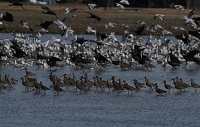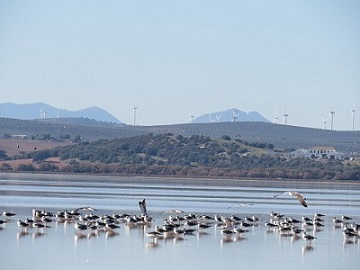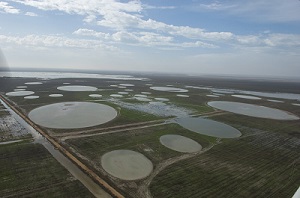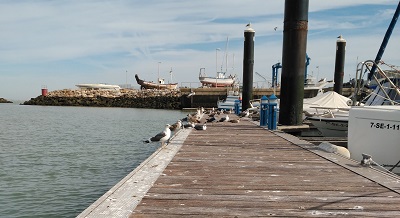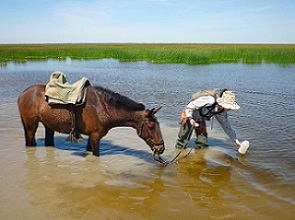
Welcome
Welcome to the official website of the Doñana Biological Station (EBD-CSIC)...

The Doñana Biological Station: EBD-CSIC
The Doñana Biological Station is a public Research Institute belonging to the Spanish Council for Scientific Research CSIC in the area of Natural Resources...

Mission
Our fundamental mission is to carry out multidisciplinary research of the highest standard directed to understanding the way in which biodiversity is generated, maintained and deteriorates, as well as the consequences of its loss...

Our methods
We apply many techniques within a multidisciplinary framework, from molecular genetics to remote sensing, and from modelling to physiological and isotopic analyses...

Monitoring the environment
Monitoring biodiversity at the Doñana Natural Space cover a wide range of communities, including both terrestrial and aquatic organisms...

Aims
Our aims include the study of the ecological and evolutionary processes by combining field work, mathematical and statistical models and physiological and genetic analysis...
 Outstanding
Outstanding
-
 Apple snail control does not cause many of the declines of waterbird abundance in the Ebro Delta Natural Park
Apple snail control does not cause many of the declines of waterbird abundance in the Ebro Delta Natural Park -
 Gulls and storks contribute to the dispersal of exotic invertebrate species between ricefields and protected areas
Gulls and storks contribute to the dispersal of exotic invertebrate species between ricefields and protected areas -
 Functional diversity of macroinvertebrates as a tool to evaluate wetland restoration
Functional diversity of macroinvertebrates as a tool to evaluate wetland restoration -
 Seagulls act as vectors of metals and arsenic between landfills and protected wetlands
Seagulls act as vectors of metals and arsenic between landfills and protected wetlands -
 Doñana's water quality, in danger due to intensive agriculture and a poor residual water treatment
Doñana's water quality, in danger due to intensive agriculture and a poor residual water treatment
 News
News
Content with tag wetland ecology .
 Apple snail control does not cause many of the declines of waterbird abundance in the Ebro Delta Natural Park
Apple snail control does not cause many of the declines of waterbird abundance in the Ebro Delta Natural Park
This apple snail control has been highly controversial due to its potential side effects on waterbird conservation. However, by assessing long series of...
 Gulls and storks contribute to the dispersal of exotic invertebrate species between ricefields and protected areas
Gulls and storks contribute to the dispersal of exotic invertebrate species between ricefields and protected areas
 Functional diversity of macroinvertebrates as a tool to evaluate wetland restoration
Functional diversity of macroinvertebrates as a tool to evaluate wetland restoration
 Seagulls act as vectors of metals and arsenic between landfills and protected wetlands
Seagulls act as vectors of metals and arsenic between landfills and protected wetlands
 Doñana's water quality, in danger due to intensive agriculture and a poor residual water treatment
Doñana's water quality, in danger due to intensive agriculture and a poor residual water treatment
The core area of Doñana is a large...

